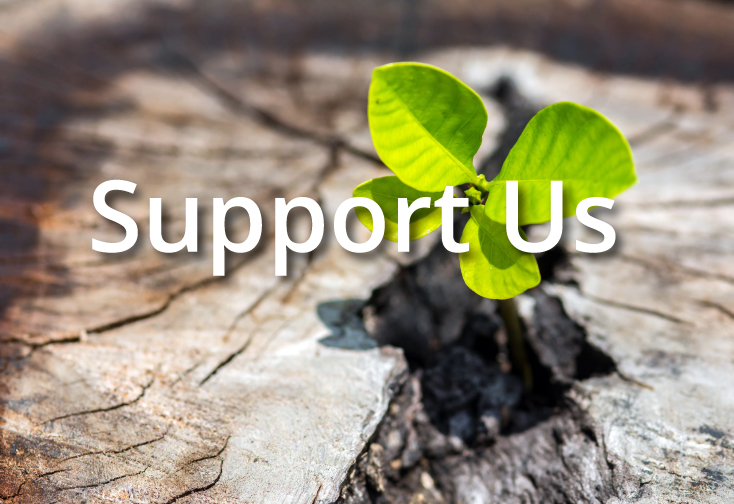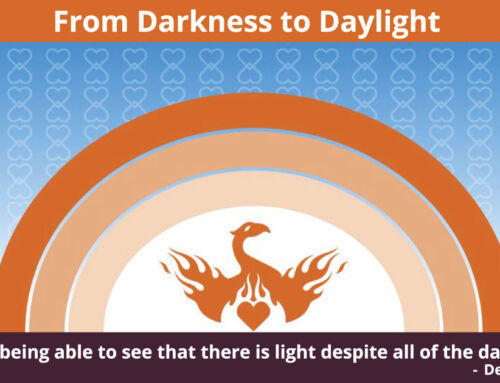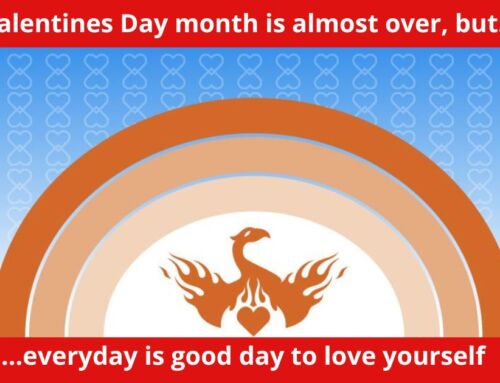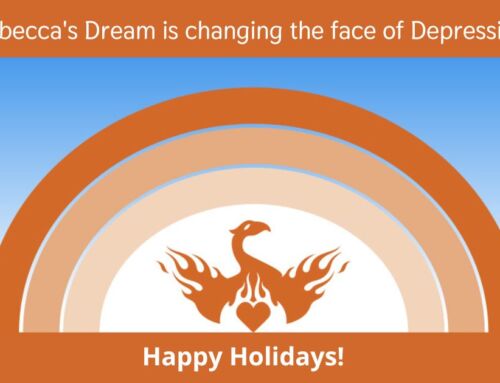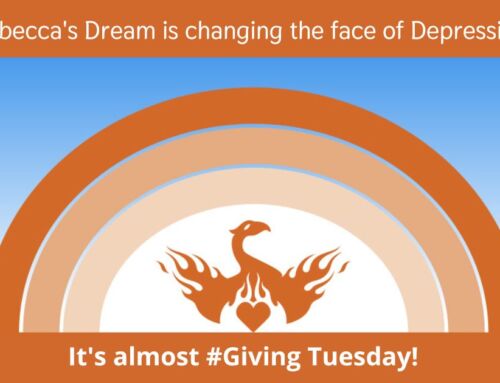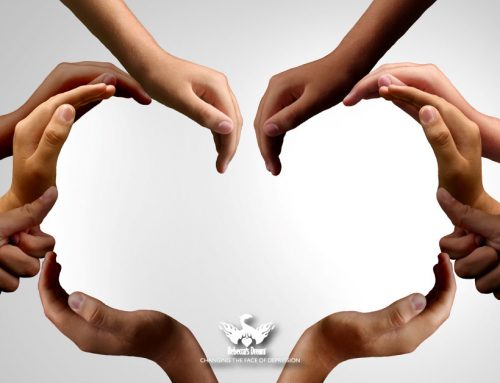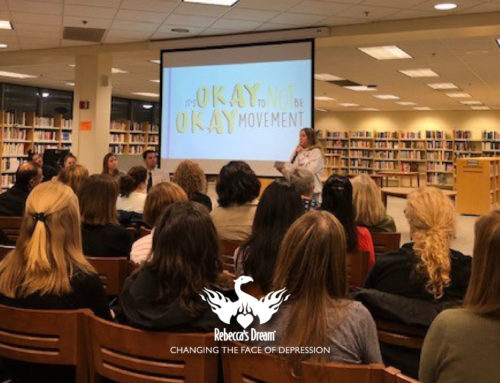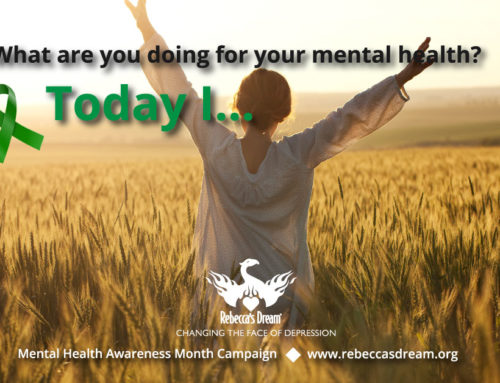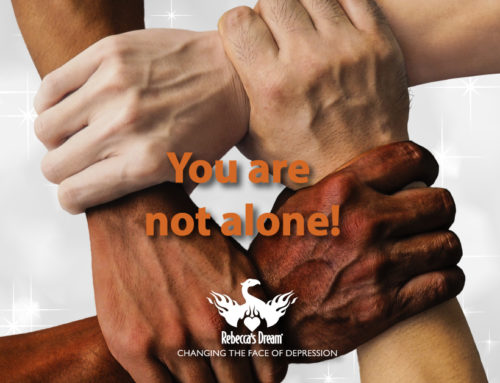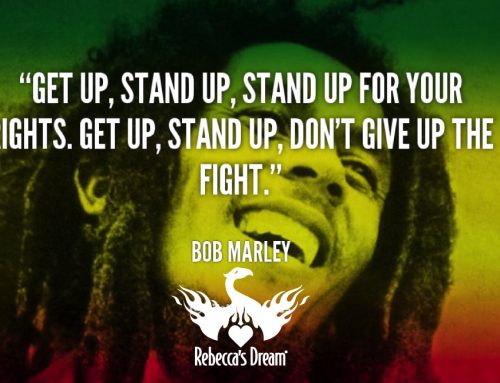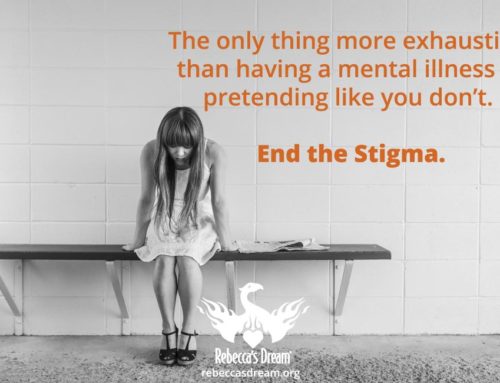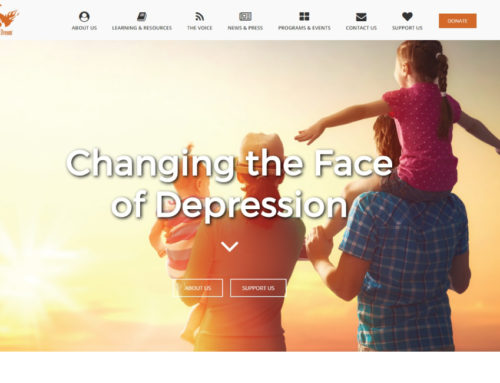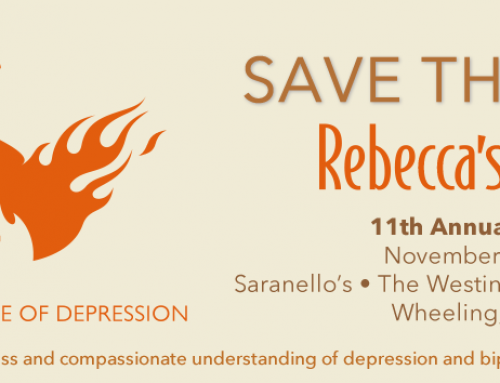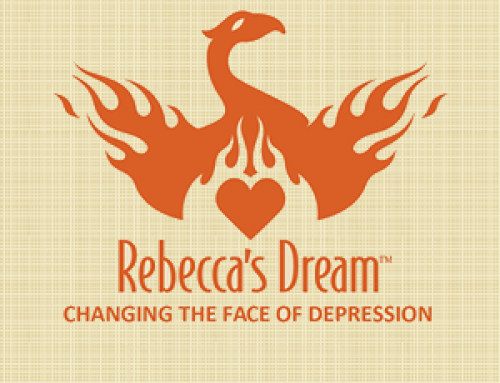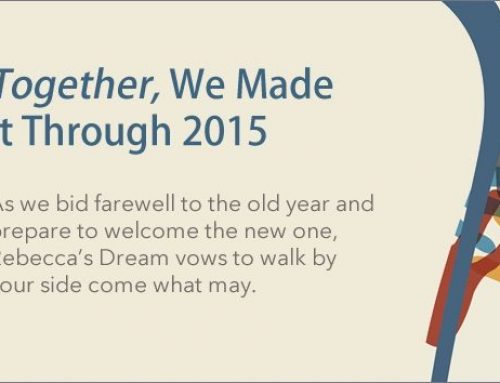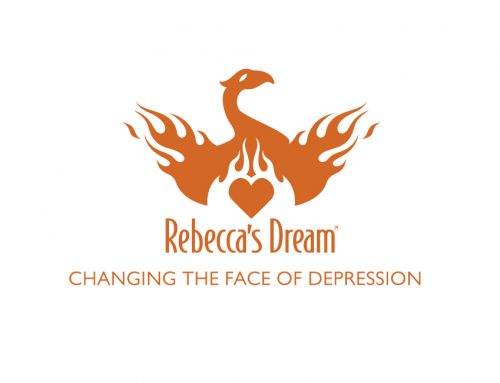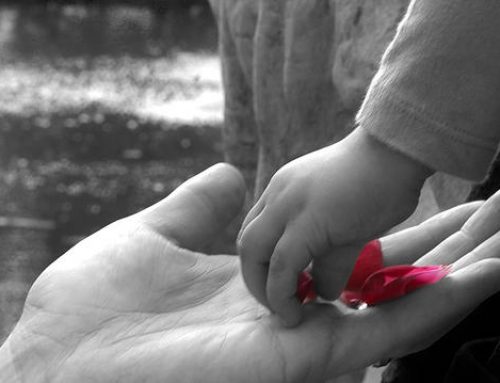FULL DISCLOSURE
ovember 13, 2017—this would have been your 44th birthday, Rebecca Lynn. And on November 13, 2017, your mother, Gail, will begin treatment for breast cancer. What are the odds that your birthday and my treatment are the same day? I know you will be my guiding force through this next chapter of my life. I know you’ll be by my side every step of the way. You’ll find a way to assure me that all will be well. How do I know? Because you were always that person helping other people through the darkest moments in their lives. You were a caretaker for those you loved and who loved you in return. I believe you are still taking care of so many people, and now I, am in need of your gentle spirit.
Thank you, darling daughter. Thank you.
In spite of a cancer diagnosis at age 72, I’m more fortunate than you had been with a diagnosis of depression and bipolar disorder at age 23. Although I grew up in an era when cancer was spoken of as “the big C”—or not spoken of at all, due to extreme stigma—times have changed for the better. My medical team is open, honest, compassionate, understanding, and kind. My family and friends are present, loving, supportive—and irked, because I’m fiercely independent and won’t allow them to do more. Legions of breast cancer survivors are constantly reassuring me that I will be fine, all will be well, this too shall pass, I will stop thinking about it, and my life will resume in good time.
All positive, reassuring, uplifting, and empathic words of encouragement. I’m grateful to everyone for such an outpouring of love and devotion. Most of all, I’m shocked by the numbers of women (and a few men) who have survived breast cancer and are so willing to walk the path with the newly diagnosed. I am now a member, in good standing, of a strong and resilient team of beautiful people.
You, on the other hand, dearest daughter, did not experience an outpouring of love and caring when you were diagnosed with a disease—a terribly real disease—that legions of people live with every single day of their lives. Like those with cancer who struggled decades ago, we as a family also found ourselves struggling with the fear of stigma—the stigma toward mental health.
Do we share this with family and friends? Do you share with your boss, colleagues, friends, and significant others? If so…when and how? If not…how long could you mask the cycle of recurring symptoms?
We struggled mightily, Becky. We wanted to protect you from the harsh reality of loss—job, friends…from the harsh reality of being ridiculed, bullied, humiliated, blamed for others’ mistakes….the list goes on…and on.
No one came to your door with hot, chicken soup and warm, uplifting words of encouragement when you could not get out of bed. No one offered to pick up groceries, change your sheets, and clean your apartment when depression overwhelmed you. We were there, your parents, with all our love and devotion, but where was your larger support system? Where were the legions of people living successfully with this same disease and waiting to walk this path with you? Where was that strong and resilient team of beautiful people to tell you that “this too shall pass, all will be well, you will be fine, life will resume in good time”…?
What you heard instead—and repeatedly—were comments like “Oh, come on, pull yourself up by your boot straps….Your parents spoiled you rotten; you’re faking to get attention….Just get over it…Everyone feels sad and blue; stop it!! …No one who looks like you can be that depressed….You have everything—why are you depressed?”
This list also goes on…and on.
Today, though, I do believe that a bit of mental health stigma is easing, thanks to the courage and determination of real people—actors, politicians, medical doctors, mental health professionals, and the many foundations and organizations who are educating the public about the truth of depression and bipolar disease.
THE TRUTH—MENTAL ILLNESS IS A REAL DISEASE!!
Recently, Graeme Cowan—the #1 authority in Australia on leadership resilience—wrote about disclosing his own depression, saying that “a number of friends offered to walk with me in nature.” Graeme went on to write that he is feeling “100% again and would like to thank many of you who reached out to offer support and encouragement. It was greatly appreciated.”¹
This is how it should be, whether it’s diabetes or bipolar disorder or cancer or depression. I have cancer—people reached out to help me—I thank them from my heart and soul—I will always be grateful.
Someone you know—a friend, loved one, colleague, neighbor, spouse, significant other—is living with depression or bipolar disorder and having a difficult time. Find it in your heart and soul to offer acts of loving kindness and to walk the path with them, like the people in Graeme’s support system and my cancer support system. Let them know they can talk to you, with no judgment or stigma to fear. Be that person. You will be forever appreciated and loved—and helped in kind, when in your own time of need.
Though he was writing about Australia, Mr. Cowan published a study about stigma in the workplace, and the results he shared could describe just about anywhere on the globe. After polling 520 people in the Australian workplace, here are his conclusions:
“There is no doubt that a mentally healthy culture is highly valued by employees, and yet one of the biggest inhibitors is that people don’t feel comfortable discussing why it is important. This is despite all of us knowing someone close to us that struggles with mental distress. It also appears that larger companies…have a greater level of stigma. When we know that mental distress is the largest contributor to lost productivity—Houston we have a problem.”
Are you aware of the TV show, “Leah Remini: Scientology and the Aftermath”? I wasn’t, until it was recommended that I watch this year’s Season 2, Episode 2. During this episode, “the lives of Church members who suffered from depression and ‘suicidal ideation’“ were discussed. The theme of the program was that mental illness should be treated “with vitamins, auditing, and exercise,”² not with medication or talk therapy.
I wonder if this particular show had been talking, instead, about cancer treatment….would they have advocated for vitamins and exercise only, instead of in addition to medical treatment? Perhaps.
I also wonder if Graeme Cowan had interviewed cancer patients in the workplace….would those folks have been too worried about stigma, job loss, humiliation, and bullying to tell their boss and coworkers when they needed time off to address treatment and its side effects? I don’t think so.
Perception is everything.
If I perceive you as being a person in need who is living with a bona fide illness, I will do all I can to help you achieve wellness. On the other hand, if I perceive you as being mentally deranged, nuts, off the charts, loopy, strange, crazy, bonkers, etc., I may avoid you and label you a slacker, faker, and incapable of fulfilling your work responsibilities. How shameful.
On Monday, November 13, 2017, I will be thinking about you, Becky, as I begin the annihilation of cancer in my body. I will be silently singing “Happy Birthday” to my sweet girl while being radiated. And the same as on every day of my life without you, Becky, I will be missing you.
To all of you out there celebrating a birthday on November 13, 2017…
HAPPY BIRTHDAY TO YOU.
May all your hopes and dreams become reality.
And, together, let us hope that these words also become reality…and the norm rather than the exception:
“Be kind, for everyone you meet is fighting a hard battle.”
With love and affection,
Gail
¹Graeme Cowan, Creating Thriving Tribes, “Latest scorecard: Mental Health Stigma @ Work.”
²Jean Bentley, “Leah Remini: Scientology and the Aftermath’ Investigates Suicide and Mental Illness in the Church.” The Hollywood Reporter, August 22, 2017.
WHEN EVERYTHING SEEMS TO BE GOING AGAINST YOU,
REMEMBER THAT THE AIRPLANE TAKES OFF AGAINST THE WIND,
NOT WITH IT.
– Henry Ford
Featured Book
Lost Marbles: Insights into My Life with Depression & Bipolar
by Natasha Tracy
Understanding what it’s truly like to live with bipolar disorder or depression is almost impossible if you haven’t experienced it; and yet, that’s what Lost Marbles: Insights into My Life with Depression and Bipolar does – it shows the unvarnished reality of living with a serious mental illness to help the mentally ill and those who love them understand the inner workings and how to fight these complex disorders. Lost Marbles straddles the line between self-help and memoir detailing real-life experiences that drive tips that work when life includes a mental illness.
Coping with Change
Almost exactly two months have gone by since we dropped off my youngest for his freshman year of college. I miss both him and his brother every day. I am starting to adjust to the new normal—a very quiet house. I have taken some huge steps myself. I am working a few hours a week, from home, doing something I love. I didn’t think the day would come that I would actually be able to work again.
It feels freeing and I am hoping I can expand from where I am at. I am generally doing well, but I feel extremely fragile, like the other shoe could drop at any moment. I am trying to live in the moment and not worry about the future but it’s really hard. Past experience is evidence that my bipolar can rear its head at any time. Time has taught me that fall can be very triggering for me. Could be for any number of reasons.
This year, with my nest empty, i feel even more prone to spiraling out of control. But each day, I try to appreciate the good. As much as I miss my boys, I celebrate the fact that they are both well adjusted to school, and especially that my younger son’s transition to college was nearly seamless.
Going forward, I hope to be able to celebrate Thanksgiving with a full house. Both boys under the same roof, all celebrating with extended family.
Best wishes to all.
Sheryl

Last year more than 45,000 organizations in 71 countries came together to celebrate this global event. Since its’ founding in 2012 #GivingTuesday has resulting in greater donations, volunteer hours and activities that bring about real change to communities. We invite you to join the movement and GIVE this November 28.
A few ideas include:
There are many ways to become involved in #GivingTuesday. Join the movement. You will feel a sense of accomplishment and joy.
Thank you.
With gratitude and appreciation,
Rebecca’s Dream







